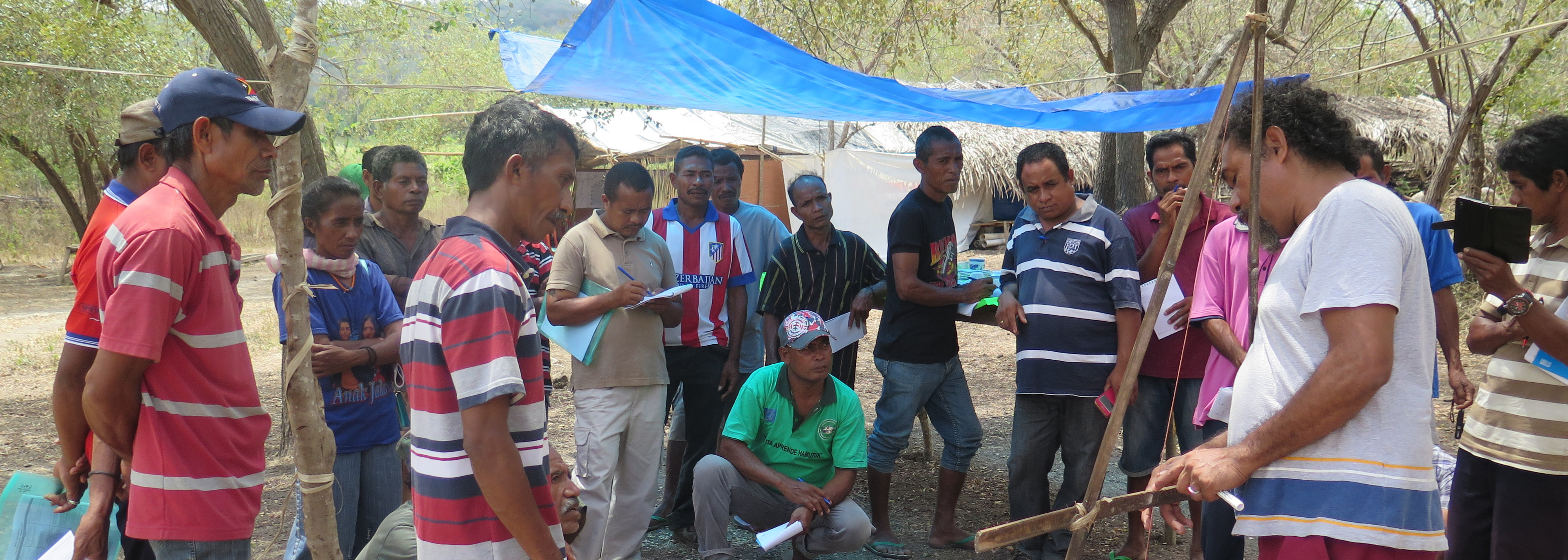This program has ended
Aim
To contribute to the sustained adoption and scaling up of sustainable food, water and energy-efficient technologies for 500 vulnerable households in six villages in the Raumoco watershed Indicators
Where
Raumoco Watershed, Lautem Municipality, Timor-Leste
Why
Unsustainable farming practices such as shifting cultivation, biomass burning, free grazing by livestock, cutting of trees for firewood and other destructive agriculture practices are prevalent in the Raumoco Watershed. The impact of these practices, together with the effects of climate variability and change on the community’s food, water and energy supplies, is having an increasingly negative effect on the quality of life of vulnerable households. There is a need to demonstrate and promote the use of agro-ecological technologies that will enable local farmers to adapt to a changing climate while contributing to sustainable food and income security.
How
The program’s approach revolves around the food-water-energy nexus. It promotes agro-ecological farming practices that increase soil health, efficiently use water and energy, depend on drought-resistant and flood tolerant-plants and improve landscape management to result in climate-resilient farms. Rainwater harvesting, planting fuelwood species and distributing improved cooking stoves are further helping vulnerable farming households to adapt to drought. The program holds demonstration of these technologies in collaboration with farmers and the Ministry of Agriculture’s Extension system to help scale up these practices among households and farming communities.




